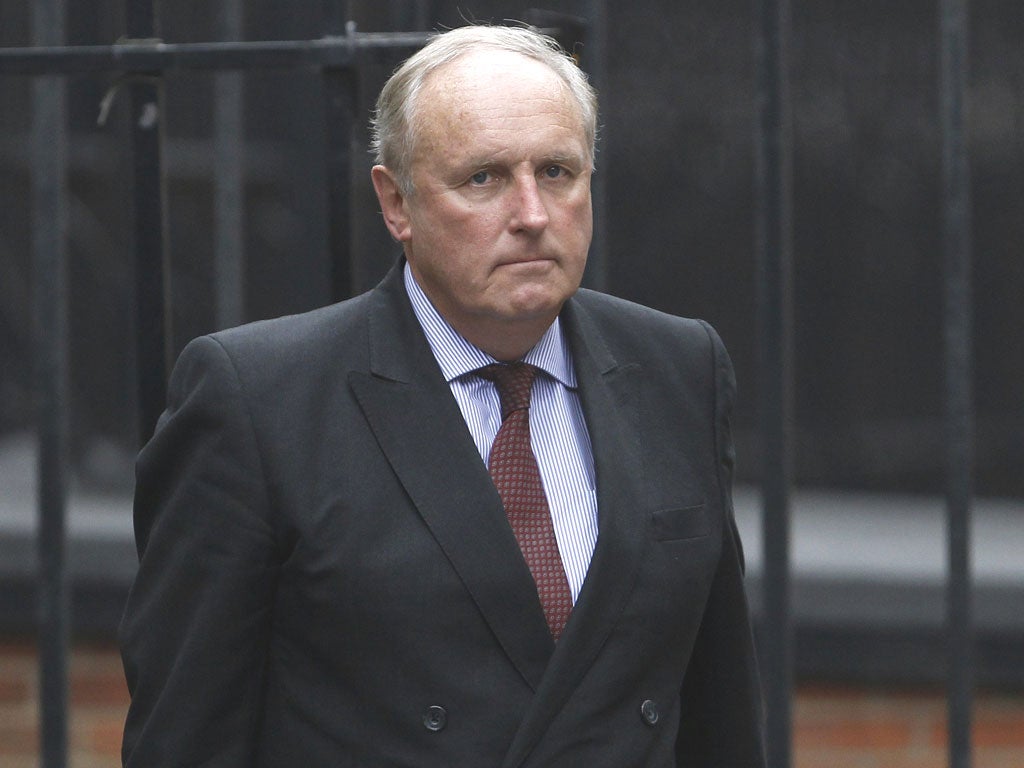Mail's private eye 'may have used criminal methods'
Editor says paper hired convicted investigator hundreds of times to get personal information

Your support helps us to tell the story
From reproductive rights to climate change to Big Tech, The Independent is on the ground when the story is developing. Whether it's investigating the financials of Elon Musk's pro-Trump PAC or producing our latest documentary, 'The A Word', which shines a light on the American women fighting for reproductive rights, we know how important it is to parse out the facts from the messaging.
At such a critical moment in US history, we need reporters on the ground. Your donation allows us to keep sending journalists to speak to both sides of the story.
The Independent is trusted by Americans across the entire political spectrum. And unlike many other quality news outlets, we choose not to lock Americans out of our reporting and analysis with paywalls. We believe quality journalism should be available to everyone, paid for by those who can afford it.
Your support makes all the difference.Paul Dacre, the editor-in-chief of the Daily Mail, yesterday conceded that a private detective the paper commissioned hundreds of times may have been engaging in criminal activity.
Challenged at the Leveson Inquiry into media standards over the paper's prolonged use of Steve Whittamore to obtain personal information, Mr Dacre said: "There was a prima facie case that Whittamore could have been acting illegally." But he said there was no evidence that the newspaper's journalists had broken the law in commissioning the detective.
The editor had been invited by Lord Justice Leveson to consult a lawyer before responding to further questioning over the paper's use of Whittamore, who was convicted of data protection offences in 2005 after the Operation Motorman inquiry.
Lord Justice Leveson told the hearing he was not convinced that all the illicit searches were in the public interest: "It seems to me that it's extremely difficult to justify some of the requests that were made."
Robert Jay, QC, counsel to the Leveson Inquiry, told the hearing that the Motorman files showed that the Mail had paid £500 for the details of 10 "friends and family" numbers of the subject of one of its stories. Mr Dacre argued that such searches were necessary to "corroborate" news stories.
During three-and-a-half hours of evidence, Mr Dacre was forced to listen to repeated criticisms of his newspaper. He was most clearly offended when Mr Jay suggested that the Daily Mail had only campaigned for the family of the murdered teenager Stephen Lawrence because the victim's father had once done plastering work at the editor's house.
"Are you really telling me that I would risk going to jail, risk destroying my career, I would put my proprietor and my paper in that position, and that I couldn't take a principled stand against something I felt very strongly, and that was only because this man at some stage many years previously had done some plastering work for me?" Mr Dacre asked. "I really do find that insulting."
Angered by a line of questioning he at one point denounced as "preposterous", Mr Dacre was obliged to defend his paper and "a company I love" over repeated attacks on its journalistic standards. Answering criticisms of his columnist Jan Moir's piece on the death of the singer Stephen Gately, he said: "I think the piece, the column, could have benefited from a little judicious sub-editing." But he maintained that "there is not a homophobic bone in Jan Moir's body".
He also stood by his organisation for accusing Hugh Grant of a "mendacious smear" after the actor told Lord Justice Leveson that the Mail and the Mail on Sunday had been involved in phone hacking. "I have never placed a story in the Daily Mail as a result of phone hacking, that I know came from phone hacking," he said.
Earlier in his evidence, Mr Dacre called for a new system of accrediting journalists; he said they should run the risk of having their press cards removed in the way that doctors are subject to being struck off by the General Medical Council. "I do believe there is an opportunity to build on the existing haphazard press card system," he said. "There are 17 bodies at the moment providing these cards. By transforming it into an essential kitemark for ethical and proper journalism, the key would be to make the cards available only to members of print newsgathering organisations or magazines who have signed up to the new body and its code."
Mr Dacre suggested that journalists not carrying such a card would be barred from covering events such as key government briefings or interviews relating to sporting fixtures. "The public at large would know the journalists carrying such cards are bona fide operators, committed to a set of standards and a body to whom complaints can be made."
He also argued that there should be a new self-regulatory body, standing alongside the Press Complaints Commission (PCC), to deal with press standards.
Join our commenting forum
Join thought-provoking conversations, follow other Independent readers and see their replies
Comments